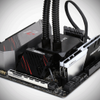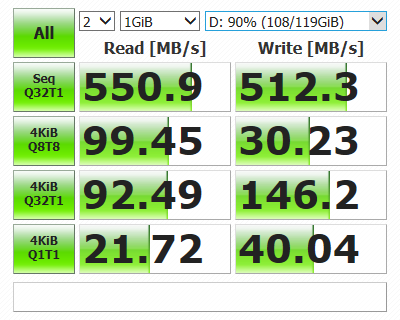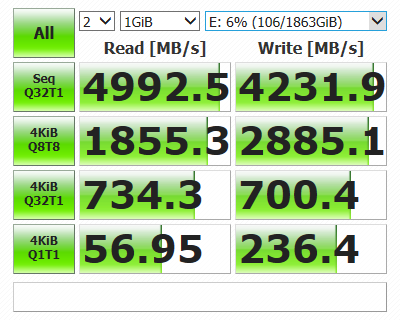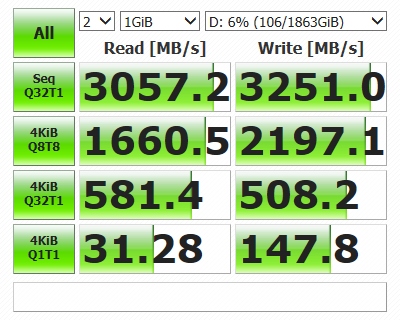Benchmarks: Storage performance
USB 3.1 / 3.2 performance
You are looking at a Plextor EX1 USB 3.1 (5 Gbps) (review here) flash drive with today's tested motherboard. It is one of the faster sticks available on the market and makes USB 2.0 at 25~30 MB/sec look rather pale in comparison. That is the maximum performance for the USB stick right there.
Plextor EX1 USB 3.1 (5 Gbps) Flash drive
PCIe 4.0 NVMe SSD Storage Performance
M.2 brings small form factor add-in SSDs to our PC platform at blazing fast speeds. There is an abbreviation for that, NGFF (Next Generation Form Factor). It is not just that though, SATA3 has not been amongst us for that long, but the SSDs evolved in a very fast manner, making SATA3 already a bottleneck for current generation SSDs as SATA3 SSDs end at roughly 550 MB/sec in terms of read/write performance. Original M.2 PCI-E SSDs are merely small form factor SSDs that communicate over your PCI Express lanes. M.2 links directly to your PCIe lanes and, as such, is an interface with much more available bandwidth. You can expect performance in the upper 2,500 MB/sec range even reaching 3,000 MB/sec with these products over NVMe 1.3 with PCIe Gen 3.0 and you may double that with PCIe Gen 4.0 and compatible devices.
Corsair MP600 2TB - PCIe Gen 4.0 M.2 SSD / Ryzen 7 3700X / X570
Same Corsair MP600 2TB now but tested on PCIe Gen 3.0 based on Intel Z370 / 9900K




